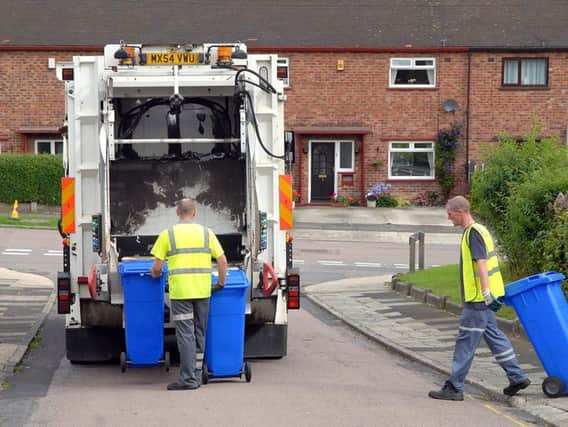Sheffield is burning two-thirds of waste collected


According to latest figures from the Department for Environment, Food and Rural Affairs, about 132,828 tonnes of rubbish - 66 per cent of all waste - ended up in specialist energy-from-waste (EfW) power plants as fuel to generate heat and electricity in 2016-2017.
And across England, burning rubbish has become more common over the last couple of years.
Advertisement
Hide AdAdvertisement
Hide AdThe average incineration rate in the country is about 38 per cent, up from 30 per cent two years earlier.
MPs and environmental campaign groups have warned of an 'incinerator boom' in recent months which may be harmful to public health.
A report launched last week in the House of Lords stoked the debate on burning waste in Britain.
Labour, Conservative and Liberal Democrat politicians called on the Government to take oversight on the industry and introduce an incineration tax.
Advertisement
Hide AdAdvertisement
Hide AdThe research revealed that harmful particles released by incinerators in England last year were equivalent to the emissions of more than a quarter-of-a-million 40-tonne lorries travelling 75,000 miles per year.
He said: "Across the UK there is more than 19 million tonnes of residual waste treatment capacity operational or under construction, but forecasts indicate that by 2030 there will only be around 10 million tonnes of residual waste available for treatment. This means that we are already facing an overcapacity of incineration that is harming recycling."
Baroness Jones, the Green Party member of the House of Lords, said: “There is a logic to generating energy from the waste that we cannot recycle or reuse, but it is meant to be the last resort option. What we have created instead is a market-driven system of incinerators which constantly need to be fed.”
The second most common way of getting rid of rubbish in Sheffield was recycling.
Advertisement
Hide AdAdvertisement
Hide AdIn 2016-2017, about 58,354 tonnes of waste, 29 per cent of the overall, were recycled to produce new materials or composted to obtain fertilicers.
Waste dumped in landfill accounts for five per cent of the total.
Over the last two years, the recycling rate in Sheffield stayed the same.
Despite the concerns raised, Libby Forrest, policy and parliamentary affairs officer at Environmental Services Association, believes the increase of waste incineration should be celebrated.
Advertisement
Hide AdAdvertisement
Hide AdShe said: "Energy from Waste has increased because we are successfully moving away from landfill, which is more damaging to the environment. Energy from Waste saves 200kg of CO₂ per tonne of waste diverted from landfill, and generates low-carbon power far more efficiently than landfill, contributing to renewable energy targets and energy security."
